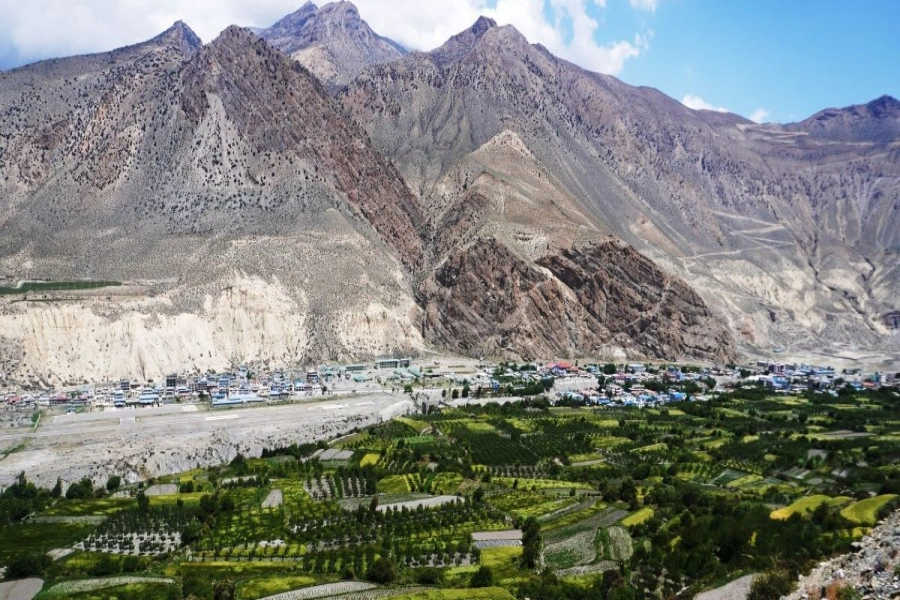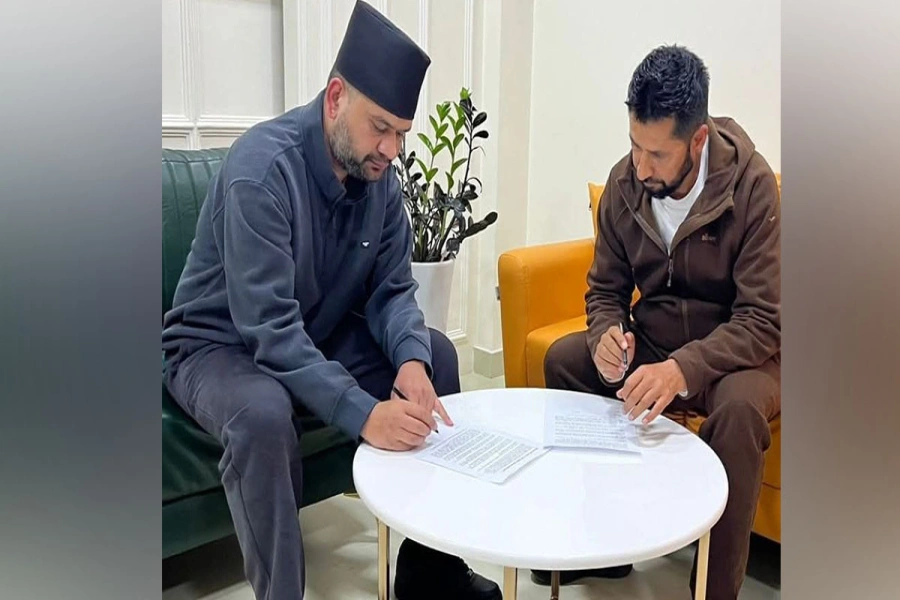KATHMANDU, Oct 26: The Rastriya Swatantra Party (RSP) has decided to change the form of its protests as the government prepares to act tough against activities aimed at destabilizing the government.
An informal meeting of RSP Central Committee members in Kathmandu on Friday decided to revise its protest activities as they have failed to mount adequate pressure on the government to release the party’s Chairman Rabi Lamichhane. Senior RSP leaders said the Central Working Committee (CWC) scheduled for Saturday is expected to decide on the new form of protest in response to the arrest of Lamichhane in connection with the cooperative fund embezzlement scam.
“Our informal central committee meeting has agreed in principle to continue the protest. However, there has been a suggestion to organize more creative protest activities. A formal meeting of the party’s central committee, scheduled for Saturday, will decide on changing the form and nature of the protests,” said RSP Spokesperson Manish Jha.
The RSP began its protest in Pokhara last Saturday, a day after Chairman Lamichhane’s arrest, alleging that the arrest was part of political vendetta by the ruling parties. However, after the Kaski District Court extended his judicial remand by another seven days on Thursday, the party decided to focus on Kathmandu-based protests.
RSP hatching strategy to end Balen’s politics from Jhapa: UML J...

The turnout at Friday's protest in Kathmandu was significantly smaller than expected. Sources suggested that the low participation of party leaders and cadres may have led the leadership to reconsider the continuity of their protest activities.
RSP’s decision to revise its protest activities came shortly after a meeting of the ruling parties, which concluded that the RSP's attempts to destabilize the government through anarchic protests were unacceptable. The ruling coalition also decided to collectively resist activities aimed at seeking alternatives to the government and promoting anarchism through street protests.
Home Minister Ramesh Lekhak briefed the leaders about the overall security situation and the ongoing protest activities launched by the RSP. He briefed that RSP leaders and cadres tried to incite violences and discredit the ruling party leaders.
The meeting of the ruling parties held at the prime minister’s official residence in Baluwatar also discussed in detail the possibility of CPN (Maoist Center) and other fringe parties joining the RSP’s protest to destabilize the government. The meeting decided to act tough against the elements that seek to undermine the rule of law and incite violence.
Regarding the cooperative fund embezzlement case, the ruling parties noted that all individuals, including RSP Chairman Lamichhane, were arrested based on the recommendations of a parliamentary probe committee. The ruling parties strongly criticized RSP leaders for attempting to influence the investigation and prosecution of those accused in the case and agreed to take a firm stance against any efforts to undermine the rule of law and the judicial process.
Top leaders of the Nepali Congress, CPN-UML, Janata Samajbadi Party-Nepal, Janamat Party, Loktantrik Samajbadi Party, and Nagarik Unmukti Party attended the meeting called Prime Minister KP Oli at his official residence in Baluwatar.
JSP-N leader Raj Kishor Yadav said the meeting concluded that RSP Chairman Lamichhane should face the same legal consequences as others facing similar charges. The meeting also discussed in detail the RSP's attempt to involve the CPN (Maoist Center) and other smaller parties in the protests to capitalize on public dissatisfaction with the government.
In a seven-point joint statement issued after the meeting, the top leaders of the ruling parties reaffirmed their commitment to improving governance amid ongoing crises and challenges, while also strengthening Nepal’s democratic future.
They acknowledged that the country is currently facing a severe economic crisis, declining confidence among industrialists and businesspeople, and a significant outflow of young people seeking employment and education abroad. Development and construction projects have stalled due to budgetary constraints. The parties also agreed to work together on laying the foundation for political stability through constitutional and structural reforms.








































